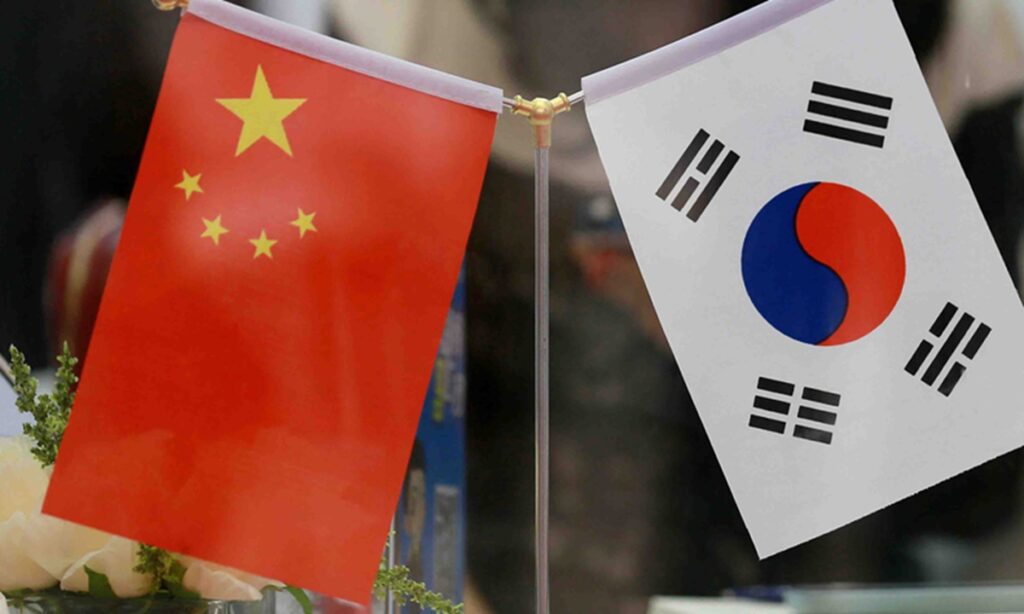On Saturday, China’s Assistant Foreign Minister Nong Rong summoned South Korean Ambassador Chung Jae-ho to express his “serious concern and dissatisfaction” over Seoul’s “improper reaction” to comments made by Chinese Ambassador to South Korea Xing Haiming in a recent meeting with Lee Jae-myung, leader of South Korea’s largest opposition party, the Democratic Party of Korea.
One day earlier, the South Korean Foreign Ministry summoned Ambassador Xing to protest his remarks on US-Korea relations, saying Xing had interfered in South Korea’s internal affairs by citing “inaccurate facts” and criticizing South Korean policy.
What exactly did Ambassador Xing say?
According to reports, he accused Seoul of being influenced by Washington and not respecting Beijing’s core concerns, including the Taiwan question, during a meeting with Lee on Thursday. Xing pointed out that the US is trying its best to suppress China and that some people are betting on the US to win and China to lose, which is clearly a misjudgment that fails to consider the broader historical context. He warned that “those betting on China’s defeat will certainly regret it later.”
Ambassador Xing was correct; he just made another factual and logical judgment. His remarks stem from South Korea’s provocative stance.
The US is mobilizing its allies in the Asia-Pacific region to form a containment ring against China, thereby compelling South Korea to take sides and assess the potential consequences of this strategic competition.
In an exclusive interview with Reuters before his visit to the US in April, South Korean President Yoon Suk-yeol said that tensions in the Taiwan Straits are caused by attempts to change the status quo by force, and South Korea joins the international community in opposing such changes. Yoon also said that the Taiwan question is not simply an issue between the Chinese mainland and Taiwan but, like the issue of North Korea, it is a global issue.
By clearly copying the US position on the Taiwan question, the South Korean government is not simply following the US’ China strategy but also is expressing confidence in the US’ ability to prevail.
The current South Korean government is gradually falling into a strategic trap orchestrated by the US to contain China. We have every reason to believe that if this trajectory continues, South Korea will no longer be a mere follower of the US but could eventually find itself in a frontline role.
It would be prudent for the South Korean government to pause and reflect before taking the next step: Is China really an enemy of South Korea? If South Korea aligns with the US strategy and pushes China into a hostile position, can South Korea bear the consequences?
South Korea’s greatest concern is the security of the Korean Peninsula, but this can never be achieved by blindly adhering to the US agenda and engaging in confrontation with China.
It is not that South Korea does not have the ability to refuse to take sides; at least South Korea has some ability to maintain the balance. However, it appears that South Korea is now leaning toward the US side. We’re concerned that this decision will jeopardize the peninsula’s security, which the South Korean people desire for.
We acknowledge that a significant challenge to current East Asian cooperation is that the existing security system restricts our ability to draw closer to one another and fails to shield us from the chilling winds of the Cold War.
It’s akin to having a thermostat, but the remote control for that thermostat is held in the American military’s hands.
We can’t continue to be trapped in an outdated Cold War system. We should not allow the Americans to decide whether we are safe. What is certain is that once the desired reunification of the peninsula is achieved, there will no longer be a place for US soldiers.
Given increasing US pressure, China and South Korea now urgently need to expand cooperation on security issues and enhance communication and collaboration. But this can only happen if South Korea respects China’s core interests and security concerns and stops appeasing the US in a manner that “irritates” China. Such actions will not bring any real benefits to South Korea.
China and South Korea are close neighbors and cannot avoid each other. China does not want turmoil and war on the peninsula. The key now is how we can resist disruption and destruction by external forces and find the right path for Asians to solve our own problems through cooperation.
(Global Times)




